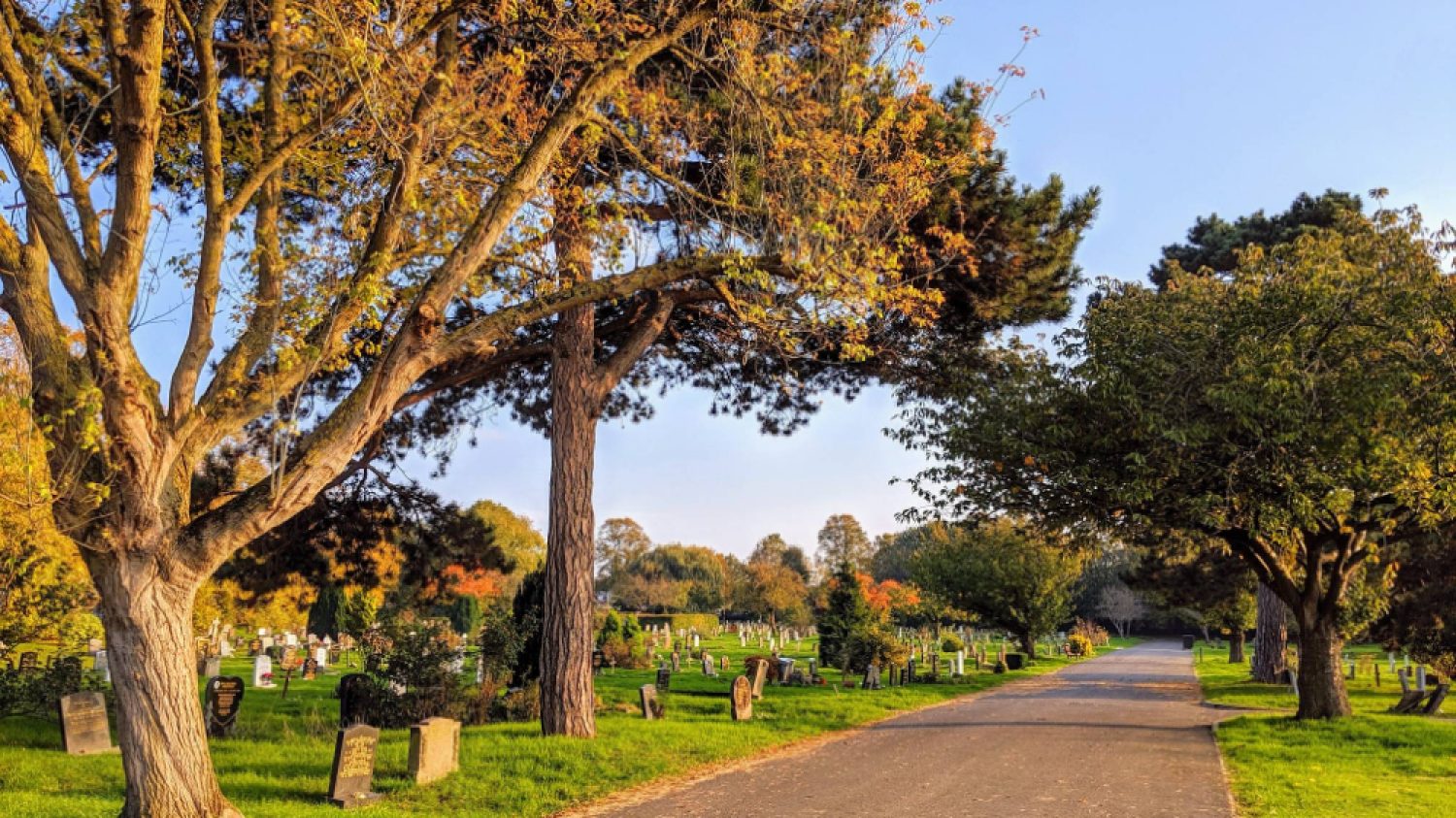Four minute read
Freddie Young reflects on more than fifty years working at Lambeth’s cemeteries and crematoria, the impact of the job on his life and the questions he gets asked about his work.
I worked at Lambeth’s cemeteries and crematoria for 50 years and three months. I was 19 when I started. Every day was different, meeting different people. As a grave-digger, you were always out in the open. It’s not all digging, there’s also cutting the grass, tidying the graves, picking up litter. Working in the crematorium, you had to take the coffin out of the chapel, tidy up the chairs, pick up any rubbish, and set up the music for the next one. There would have been nine or ten cremations a day — that’s a lot over the years.
I saw some changes. At first, I worked with some of the really old grave-diggers, you know with the peaked caps, cigarettes hanging off their lips. We worked together, all took turns. Grave-digging was all by hand, no mechanical diggers then. I worked across the different cemeteries — the job was different in each one because of the different soil. In Lambeth, it’s clay. Streatham, it’s sand or soil, right at the bottom it’s sandstone, and at the back it’s infill from where they dug up the fields to make the Northern Line.
It’s hard at first, knowing how to relate to the families. You’re there at the funeral, standing to one side but ready to help if you’re needed. Sometimes you chat, they ask you what’s going on, if they can stay around or put flowers on the coffin or fill some of the earth into the grave. Then you see them come back to put on flowers after, and they might say thanks. Then they come regularly, you start talking, get to know their first names. You’d look forward to seeing them come in again.
There are lots of misconceptions about what happens in a crematorium. I had people thinking we took the body out of the coffin and sold the coffin back to the funeral directors. Or they’d ask, ‘is it someone else’s remains in here?’ I’d say, ‘come round the back and look, then you’ll see’. If people have booked, they can always come and see the procedure. A lot more people want to now.
I met my wife through the cemetery. I knew her dad and brother first, they worked at Lambeth cemetery too. I’d go out to the pub with them on Tuesday and Thursday dinnertime. I saw her there one time and went up cheekily and said ‘hello, who are you?’ And I asked her on a date. We’ve now been married for 46 years.
It’s a family business. I worked with my cousin and son — I trained them up at the crematorium before I left. My son worked there as a casual during the summer. My brother-in-law’s a stone mason. I got the job through my uncle. It’s funny actually, we’d all go on holiday together, and when we went out to the pub, people would ask, ‘so, what do you lot do?’ We’d explain, ‘we’re grave diggers, he works in the crem, he’s a stone mason…’ then they’d start asking all sorts of questions. It was quite a laugh, seeing the surprise on their faces.
People don’t talk about funerals. If it’s your first time, you’re quite vulnerable, you don’t know what to do. If you’re honest with people and tell them what really goes on, it makes it a lot better. Then they’ve got peace of mind. If you avoid questions, it’s like you’ve got something to hide.
I was a bit sceptical about Poppy’s at first. It was something different. They’ve come a long way and done well and I’m pleased for them. There’s lots of notice taken of them, they are held up as a bit of an example.
Those last few months, with Covid, they were really hard. We had to close the cemetery except for services. We couldn’t let people in to visit the graves. We had to shut the gates. It was awful to say to people, ‘no, you can’t come in and visit’. If they had flowers, I took the flowers from them. I said that I’d put them on the grave for them even if they couldn’t come in.
I retired on 31 December last year — it was my 70th birthday. My wife retired last year and kept asking when I was going to retire. I said I wanted to do the 50 years. But I wasn’t counting the days, I enjoyed it so much with all my friends down there.
Don’t miss our other interviews, including with Poppy’s mortuary team about what it’s really like working in a mortuary and with Katrina Spade on why composting humans could be the future of death care.
To stay in touch with all the latest news and updates from Poppy's by email, sign up here or contact us if you need help planning a funeral.


